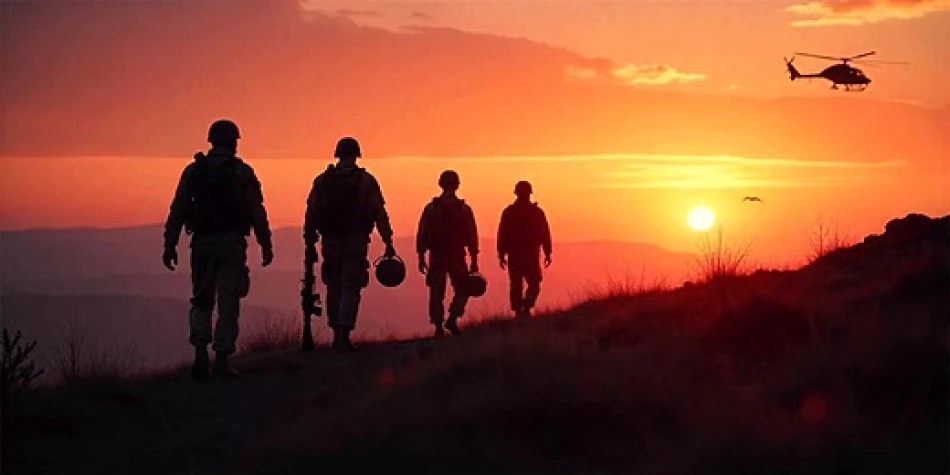
Demilitarized Nations Face Security Challenges: Exploring Strategies for Self-Protection
When Nations Choose Peace Over Power: The Strategic Logic Behind Military-Free States
While most countries engage in an endless arms race to bolster their military capabilities, a select group of nations has taken a radically different approach—abandoning standing armies altogether. These countries demonstrate that national security can be achieved through diplomacy, strategic alliances, and economic prosperity rather than military might, offering valuable lessons for modern statecraft.
The Costa Rica Model: From Civil War to Educational Superpower
Costa Rica stands as the most compelling example of successful military abolition. Following a devastating civil war in 1948, the country made the bold decision to dissolve its army in 1949 and redirect defense spending toward healthcare and education. This strategic pivot transformed Costa Rica into one of Latin America's most stable democracies and a regional leader in human development.
The results speak volumes: Costa Rica consistently ranks among the world's happiest countries and maintains one of the highest literacy rates in the Americas. By channeling resources away from military expenditure—which typically consumes 2-4% of GDP in neighboring countries—Costa Rica has built a robust social infrastructure that serves as its true foundation of stability.
Micro-States and Strategic Dependencies
Vatican City: Symbolic Security in the Modern World
As the world's smallest sovereign state, Vatican City operates without a national army, relying instead on the ceremonial Swiss Guard for papal protection. This arrangement reflects a broader trend among micro-states that leverage their unique international status and diplomatic immunity rather than conventional military deterrence.
Monaco: The French Protection Model
Monaco's defense arrangement with France, established through a 1918 treaty, represents a successful model of strategic dependency. This partnership allows Monaco to focus entirely on its role as a global financial hub and luxury destination while France handles all defense responsibilities. The arrangement has provided over a century of uninterrupted stability.
Alliance-Based Security: The NATO Alternative
Iceland presents perhaps the most sophisticated example of military-free security strategy. Despite lacking a standing army, Iceland maintains robust national defense through its NATO membership and bilateral agreements with the United States. This approach allows Iceland to benefit from collective security guarantees while avoiding the substantial costs of maintaining independent military capabilities.
The Icelandic model is particularly relevant for smaller nations seeking to balance sovereignty with security needs. By contributing to international peacekeeping and hosting strategic military installations, Iceland demonstrates how countries can provide value to defense alliances without maintaining their own armed forces.
Pacific Island Dependencies: The U.S. Security Umbrella
The Marshall Islands and Palau operate under Compacts of Free Association with the United States, which provide comprehensive defense coverage in exchange for strategic military access. These arrangements reflect the geopolitical realities of small island nations in an increasingly contested Pacific region.
For these nations, the U.S. security guarantee offers protection against potential threats from major powers while allowing them to focus on economic development and climate change adaptation—existential challenges that conventional militaries cannot address.
Economic and Strategic Implications
The success of military-free states challenges conventional wisdom about national security spending. Countries like Costa Rica demonstrate that defense budgets can be more effectively allocated toward education, healthcare, and infrastructure—investments that ultimately create more sustainable security through social stability and economic prosperity.
From an investor perspective, these nations often present attractive opportunities due to their political stability and focus on economic development. Costa Rica's thriving eco-tourism industry and Monaco's status as a financial center both stem partly from their peaceful reputations and resource allocation strategies.
Lessons for Global Security Architecture
These military-free nations offer important insights for international relations in an era of rising defense costs and global tensions. Their experiences suggest that creative security arrangements—whether through alliance systems, strategic partnerships, or regional cooperation—can provide effective alternatives to traditional military buildup.
As global military spending approaches $2.4 trillion annually, the success of these peaceful nations raises important questions about resource allocation and security strategy. Their models may become increasingly relevant as countries grapple with competing demands for public investment in an era of climate change, technological disruption, and social inequality.
Most Viewed News

 Sara Khaled
Sara Khaled






